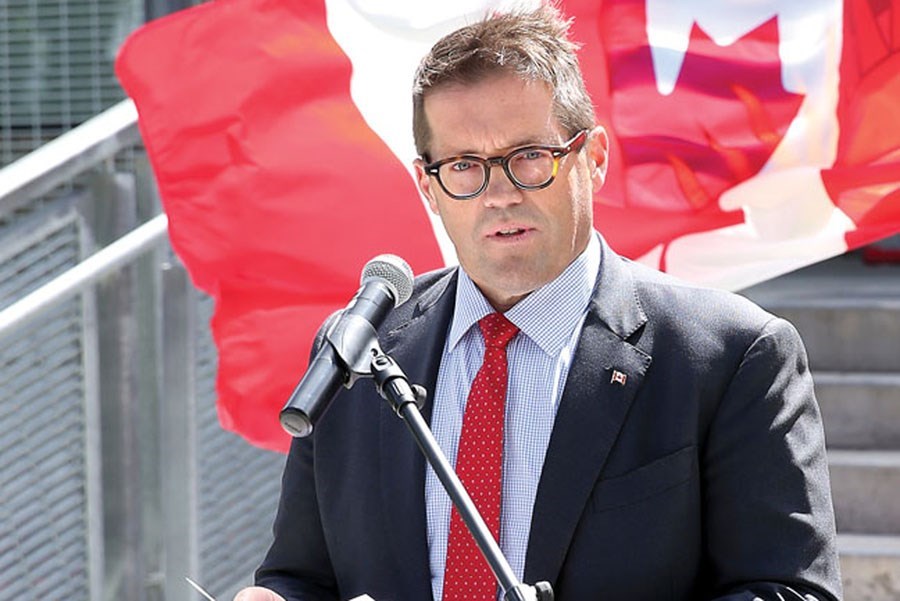Prince George-Peace River-Northern Rockies MP Bob Zimmer says B.C.'s federal exemption and decriminalization of small amounts of drugs isn't working, and has directly contributed to a rise in violent crime across the province, including his home communities of Dawson Creek and Fort St. John.
Zimmer acknowledged the record number of people lost to toxic drugs in 2023, more than 2,500, according to the BC Coroners Service's recent preliminary report.
"That certainly tells me that it's not working," he said, noting he's had many conversations with Marshall Smith, Alberta’s Chief of Staff for Mental Health and Addiction about solutions to help those who are suffering from addiction, admiring the work done by B.C.'s neighbouring province.
"When you come into an Alberta facility, and you say you need treatment, you're taken in immediately and given care. It's really helping people get off drugs," said Zimmer. "To enable somebody just to become further addicted and then eventually die of an overdose, isn't helpful to me."
Both the North and South Peace have seen a number of shootings in the past year and the new year, with the violence spilling over into residential areas, stray bullets hitting homes and creating fear for the public's safety.
"It's one thing to see shootings in a big city, you kind of expect it, even though it's unacceptable because people are dying there as well," said Zimmer. "But when you see that happening, and I think we had five shootings in 10 days in Dawson Creek, shootings are a rarity at best in Dawson Creek and Fort St. John, and then we see this sort of regularly occurring now."
In December, to tackle crime in Northern B.C, teaming up with Dawson Creek resident Kaylee Lindeberg, a local teacher concerned for the safety of her students after hearing gunfire only blocks away.
Residents are no longer letting their kids walk to school anymore out of fear of being caught in the crossfire, noted Zimmer, with their petition aiming bring awareness about the issue to Ottawa.
"This isn't just a big city problem anymore, this is hitting us in rural communities in northern B.C.," he said.
The petition calls upon the Government of Canada to repeal soft-on-crime and catch-and-release policies and end the decriminalization of hard drugs. It also asks for investment into treatment and recovery for those suffering from addiction.
Another 60 days are left for anyone wanting to add their name to the petition, and 567 people have already added their signatures.




